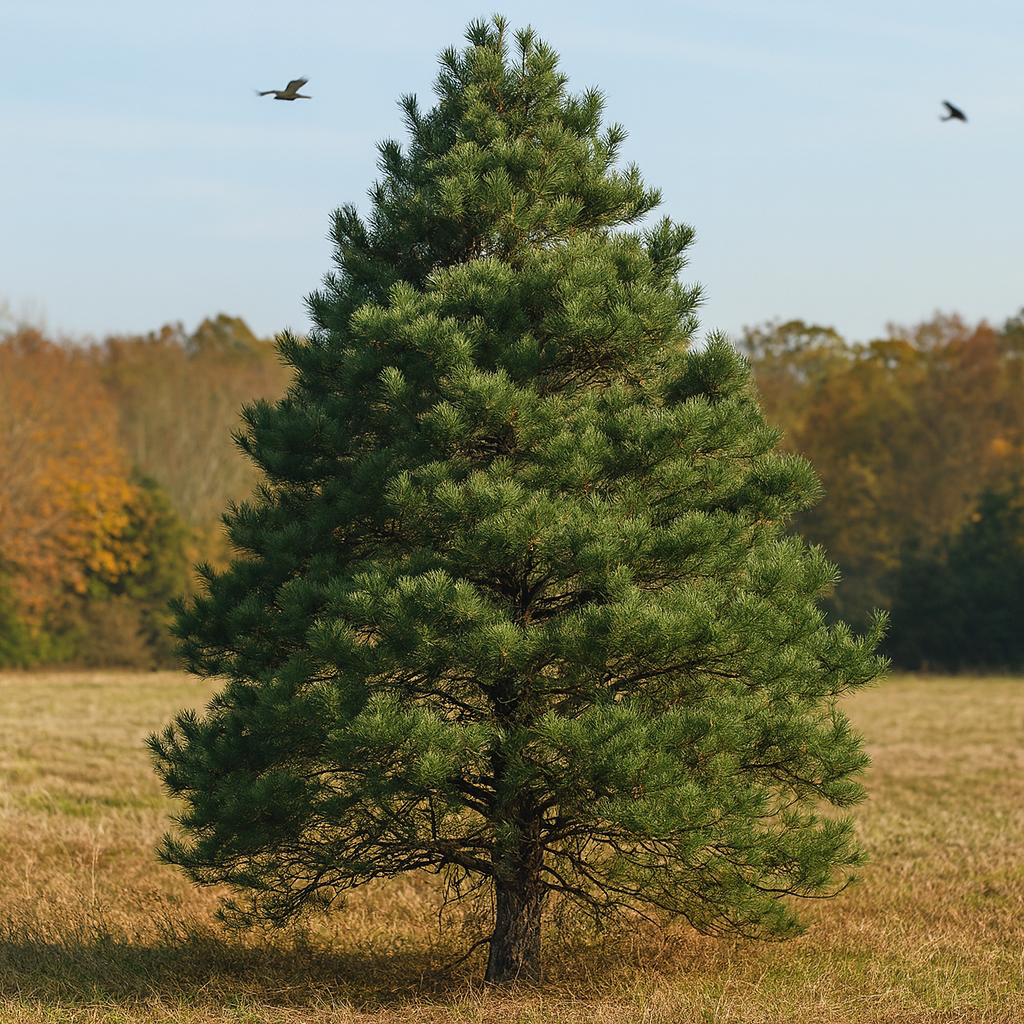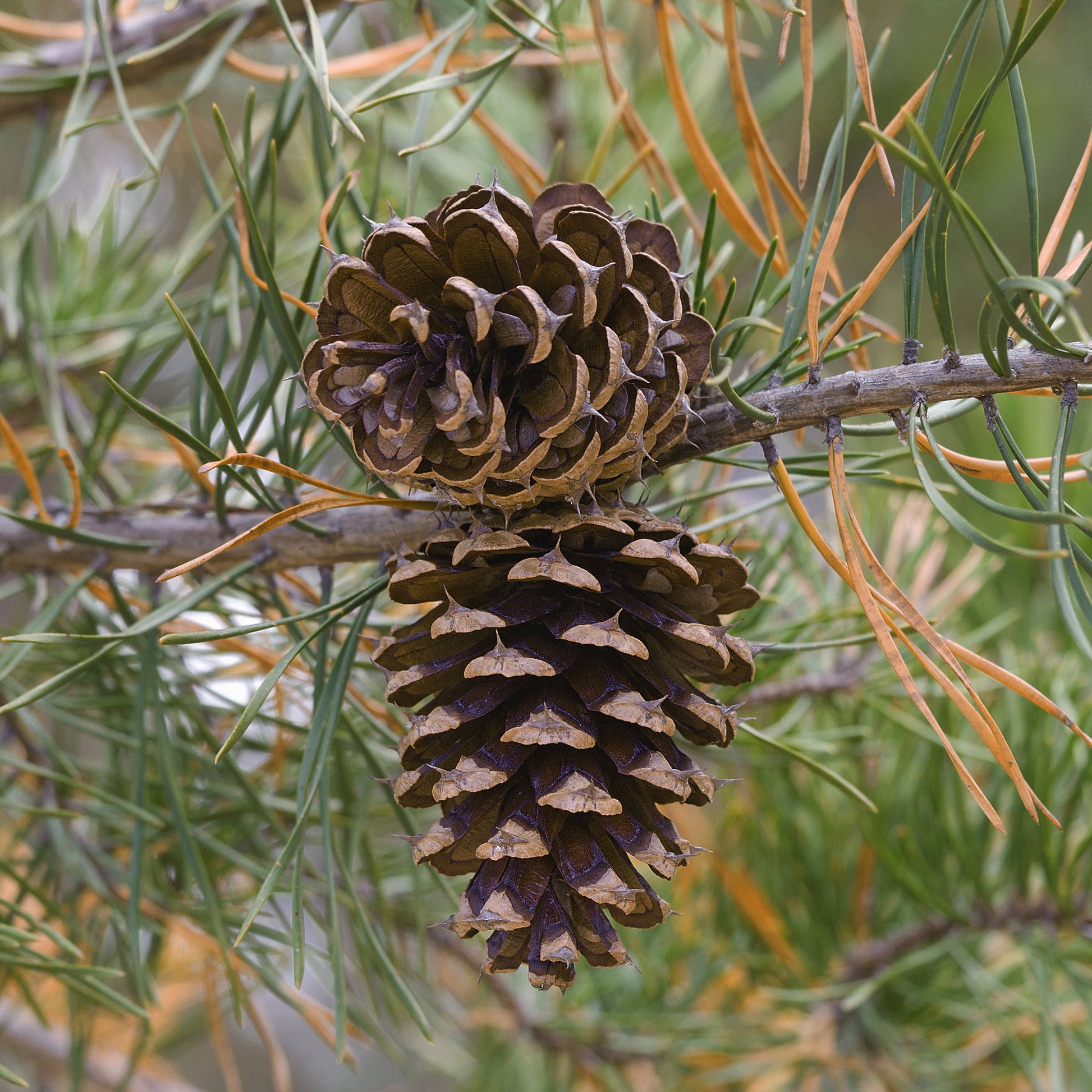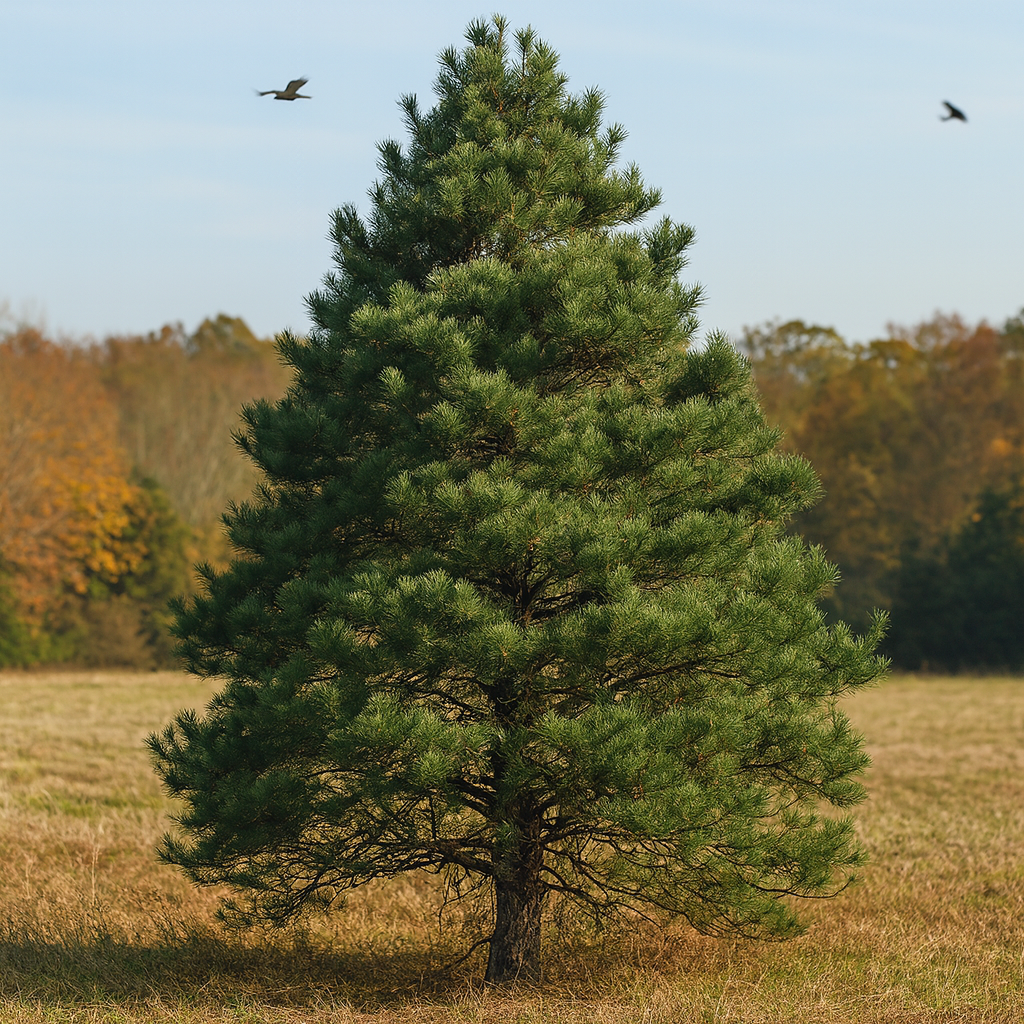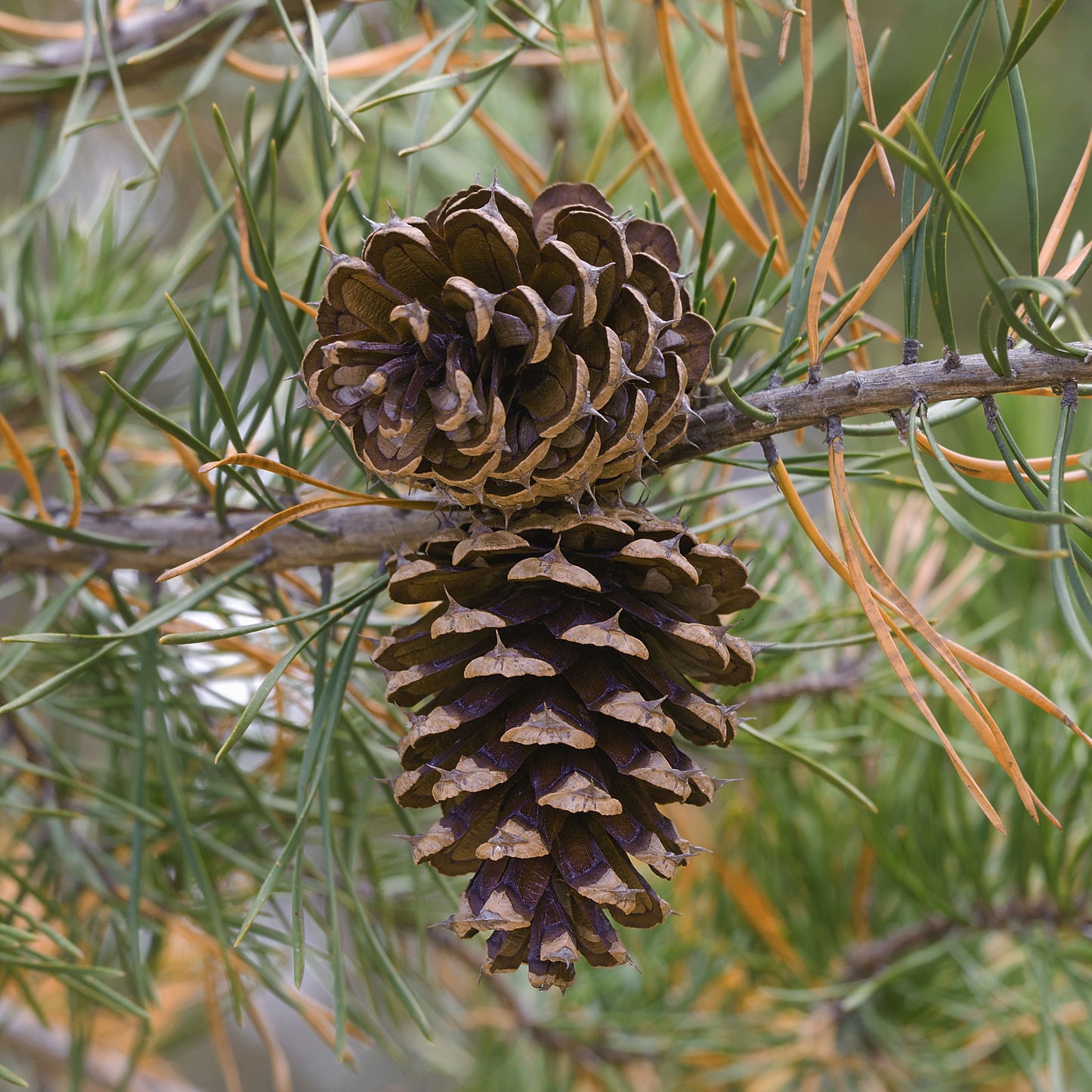Limited Quantities - Reserve Now For Fall
-
Intermediate Zones 4-8

-

Virginia Pine Tree
Virginia Pine Tree
Couldn't load pickup availability
Pinus virginiana
Virginia Pine Tree
The Virginia Pine is a rugged, fast-growing native pine known for its twisted, picturesque form and adaptability to poor soils. Found throughout the eastern U.S., this scrappy evergreen is a pioneer species that thrives where other trees won't, making it ideal for reforestation, windbreaks, and naturalized plantings.
With short, twisted needles and reddish-brown bark that peels in plates, the Virginia Pine adds texture, cover, and year-round greenery to challenging landscapes.
Virginia Pine Tree Overview
|
Attribute |
Details |
|
🌿 Botanical Name |
Pinus virginiana |
|
🏷️ Common Names |
Virginia Pine, Scrub Pine, Jersey Pine |
|
🌳 Mature Height |
20–60 feet |
|
🌐 Mature Width |
15–30 feet |
|
📈 Growth Rate |
Fast (18–30" per year) |
|
⏳ Lifespan |
60–90 years |
|
🧊 USDA Zones |
4–8 |
|
❄️ Chill Hours |
600–900 hours |
|
☀️ Sun Preference |
Full sun |
|
🧱 Soil Type |
Tolerates poor, dry, rocky, sandy, or clay soils |
|
⚖️ Soil pH |
Acidic to slightly neutral (4.5–6.5) |
|
💧 Water Needs |
Low to moderate; drought-tolerant once established |
|
🌸 Flower Color |
Not applicable (conifer) |
|
🍒 Fruit Type |
Small brown cones (1.5–2.5 inches) |
|
🐝 Pollinators |
Wind-pollinated |
|
🌿 Growth Habit |
Upright, irregular form with spreading crown |
|
↔️ Spacing |
12–20 ft apart for screens or naturalized growth |
|
🏡 Landscape Uses |
Windbreaks, reclamation, wildlife cover, privacy rows |
|
🧹 Maintenance Level |
Very low |
Environmental Benefits
🌲 Acts as a pioneer species in poor or disturbed soils
🦌 Provides excellent winter cover for birds and wildlife
🌬️ Functions as a windbreak or erosion barrier
🌿 Improves soil over time through natural leaf litter cycling
Pros & Cons
|
✅ Pros |
⚠️ Cons |
|
🌞 Tough, fast-growing, and heat/drought-tolerant |
🌀 Can develop irregular shape if not pruned early |
|
🌲 Evergreen screen or windbreak in poor soils |
🪵 Not ideal for formal landscapes due to rugged form |
|
🐦 Wildlife habitat for birds, deer, and small mammals |
🐛 May be susceptible to pine beetles or rust if stressed |
|
🔄 Great for reforestation and erosion control |
🍂 Moderate needle drop can create cleanup needs |
|
🧬 Native to Eastern U.S.; adapted to poor conditions |
🔥 Flammable resin makes it less ideal for fire-prone areas |
Planting & Care Guide
🛁 Water well before and after planting; allow to dry slightly between waterings
🕳️ Dig hole 2–3x the width of the root ball; plant at soil line
🌾 Apply a light mulch ring to retain moisture and prevent competition
💦 Water deeply during the first year; reduce frequency after establishment
✂️ Prune in late winter to shape or remove dead branches
🧪 Rarely needs fertilization but can benefit from pine-specific feed in poor soils
The Virginia Pine Tree is a scrappy, no-nonsense native evergreen that thrives where others fail. Whether you’re reforesting barren ground, creating wildlife cover, or building a wind-resistant privacy screen, this tough pioneer brings strength and green resilience to your landscape.
Share




